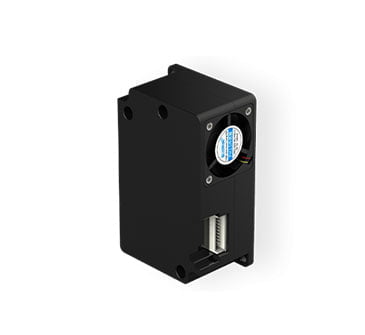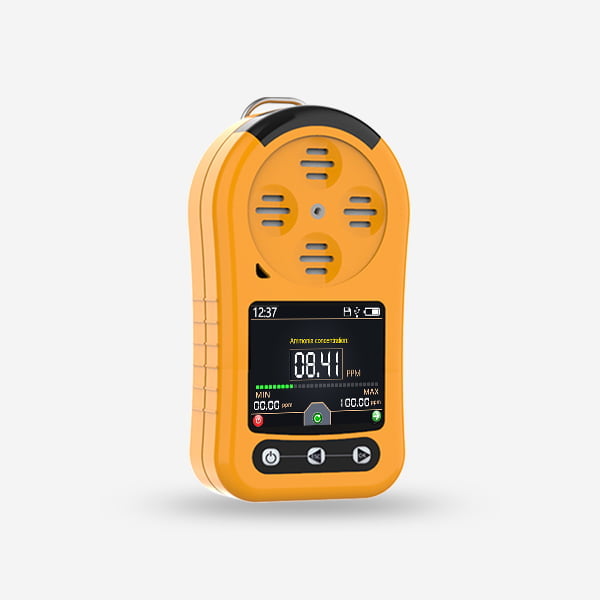Learn about the Explosion-Proof H2 Sensor
The explosion-proof H2 sensor is an advanced technology that ensures reliable and accurate detection of hydrogen gas, providing invaluable protection against potential hazards. This article explores the features, working principle, applications, and benefits of the explosion-proof H2 sensor, highlighting its significance in ensuring a safe working environment.
Features of the explosion-proof H2 sensor:
The explosion-proof H2 sensor boasts several key features that make it a reliable safety technology:
1.1. Robust construction: The sensor is designed to withstand harsh industrial environments and is built with durable materials to resist explosions and external impacts.
1.2. Precise detection: The sensor utilizes advanced detection technologies to accurately measure the concentration of hydrogen gas in real-time, enabling quick response and preventive actions.
1.3. Wide detection range: The sensor has a wide detection range, allowing it to detect hydrogen gas concentrations from trace amounts to highly concentrated levels.
1.4. Fast response time: The sensor provides an instantaneous response to hydrogen gas leaks, minimizing the potential for ignition and explosion.
1.5. Easy installation and maintenance: The sensor is designed for easy installation, calibration, and maintenance, ensuring hassle-free operation.
Working principle:
The explosion-proof H2 sensor operates on a catalytic combustion principle. It consists of a sensing element coated with a catalyst that promotes the reaction between hydrogen gas and oxygen in the air. When hydrogen gas interacts with the catalyst, it undergoes combustion, generating heat. The sensor then measures the temperature rise caused by this combustion to determine the concentration of hydrogen gas present in the environment. If the detected concentration exceeds the predetermined threshold, the sensor triggers an alarm or activates safety measures to prevent potential hazards.
Applications of the explosion-proof H2 sensor:
The explosion-proof H2 sensor finds its applications in various industries where hydrogen gas is produced, stored, or used. Some notable applications include:

3.1. Chemical industry: The sensor ensures safety in chemical plants where hydrogen gas is used for various purposes, such as refining processes, fuel cells, and hydrogenation reactions.
3.2. Oil and gas industry: It plays a crucial role in detecting hydrogen gas leaks in oil refineries, off-shore platforms, and natural gas processing plants, preventing disastrous explosions.
3.3. Battery manufacturing: With the growing demand for hydrogen fuel cells and battery technologies, the sensor ensures safety in facilities involved in the production of lithium-ion and hydrogen fuel cells.
3.4. Laboratories: The sensor provides vital protection against hydrogen gas leaks in research laboratories where experiments involving hydrogen gas are conducted.
Benefits of the explosion-proof H2 sensor:
4.1. Enhanced safety: The primary benefit of the explosion-proof H2 sensor is its ability to ensure the safety of personnel working in hazardous environments. By providing early detection and prompt warnings, it minimizes the risks associated with hydrogen gas.

4.2. Prevents explosions: The sensor’s rapid response time allows for immediate action to be taken in the event of a hydrogen gas leak, preventing potential explosions and their devastating consequences.
4.3. Compliance with safety standards: The use of explosion-proof H2 sensors helps industries comply with safety regulations and standards, thereby avoiding legal complications and potential damage to their reputation.
4.4. Cost-effective: While the initial investment may be higher, the long-term benefits outweigh the costs. The sensor’s ability to detect leaks and prevent accidents ensures savings in terms of property damage, human lives, and operational downtime.
4.5. Peace of mind: Employing reliable safety technology like the explosion-proof H2 sensor provides peace of mind to both workers and management, fostering a productive and secure work environment.
Conclusion:
The explosion-proof H2 sensor stands as a crucial safety technology, guaranteeing reliable detection of hydrogen gas and preventing potential explosions. Its robust features, precise detection capabilities, and wide range of applications make it an indispensable tool in industries where hydrogen gas is present. By prioritizing safety and investing in advanced technologies like the explosion-proof H2 sensor, industries can effectively mitigate the risks associated with hydrogen gas and ensure a safe working environment for everyone involved.





